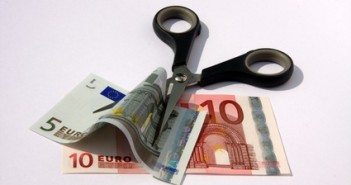The situation in Greece is deteriorating quite rapidly. An exit from the euro-zone has high chances. If not, a third bailout program including debt restructuring also for the official sector is on the cards.
The second bailout program is showing more and more signs of failure, and the current situation isn’t likely to last, whatever government is elected. Here are the signs.
- Bank jog / run: Pictures of lines at banks are less common nowadays – this can be done using the internet. Yet there’s evidence that Greeks are pulling money out of banks. The size isn’t clear, and there’s some logic in limiting the talk about it, as it can manifest itself. So, it’s hard to call it an outright “bank run”, but money is leaving.
- Tax run: Greeks are deferring tax payments, wherever they can. Why pay someone who is going to go bankrupt? This adds to the pressure on the Greek state.
- Companies moving money out of the country :There are reports that international companies such as Vodafone and Heineken are moving money out of the country on a daily basis, fearing a the dreaded Grexit. Yet again, fear of trouble causes more trouble.
- Energy problems: PPC, which was supposed to collect the hated property tax (part of the austerity measures) doesn’t really collect them, as it fears that customers will not pay electricity bills. The company is already in trouble. Other companies, which rely on natural gas, are having troubles paying their international business partners. Controlled blackouts cannot be ruled out in some parts of Greece.
- No money for medicine: Pharmacies haven’t received payments and cannot supply medicine at subsidized prices. Will only the rich have access to health? This cannot last too long.
- Economy worsening: Unemployment continues rising after crossing the 20% mark. Industrial output is also falling, and even tourism revenues are way down.
Greek banks did received €18 billion from the EFSF as part of the bailout program. This is only a temporary relief in the current environment.
June 30th is the deadline for passing 77 measures. This is a prerequisite for more aid. This will probably be the first official failure of the bailout program.
However, with the country falling apart its hard to see this bailout program lasting too long. The troika will have to negotiate a new deal that will consist of more debt restructuring. With most of Greece’s debt held by the public sector after Bailout 2, the money will have to come from the official sector: IMF and EU money – taxpayers money.
Or, let Greece leave the euro-zone. See how to trade the Grexit
This article is part of the Forex Monthly Outlook for May. You can download it by joining the newsletter in the form below, which appears on any article on Forex Crunch.
